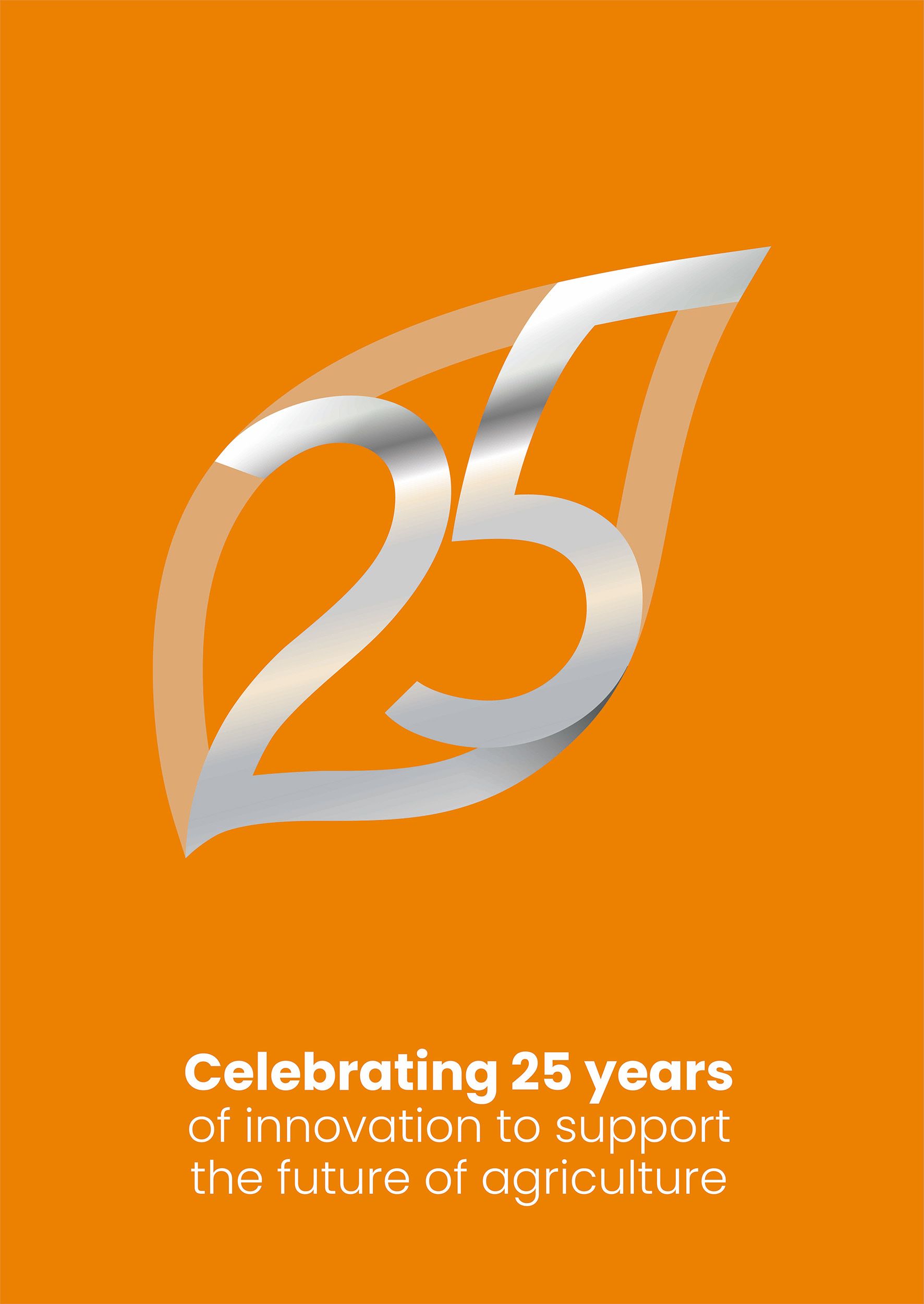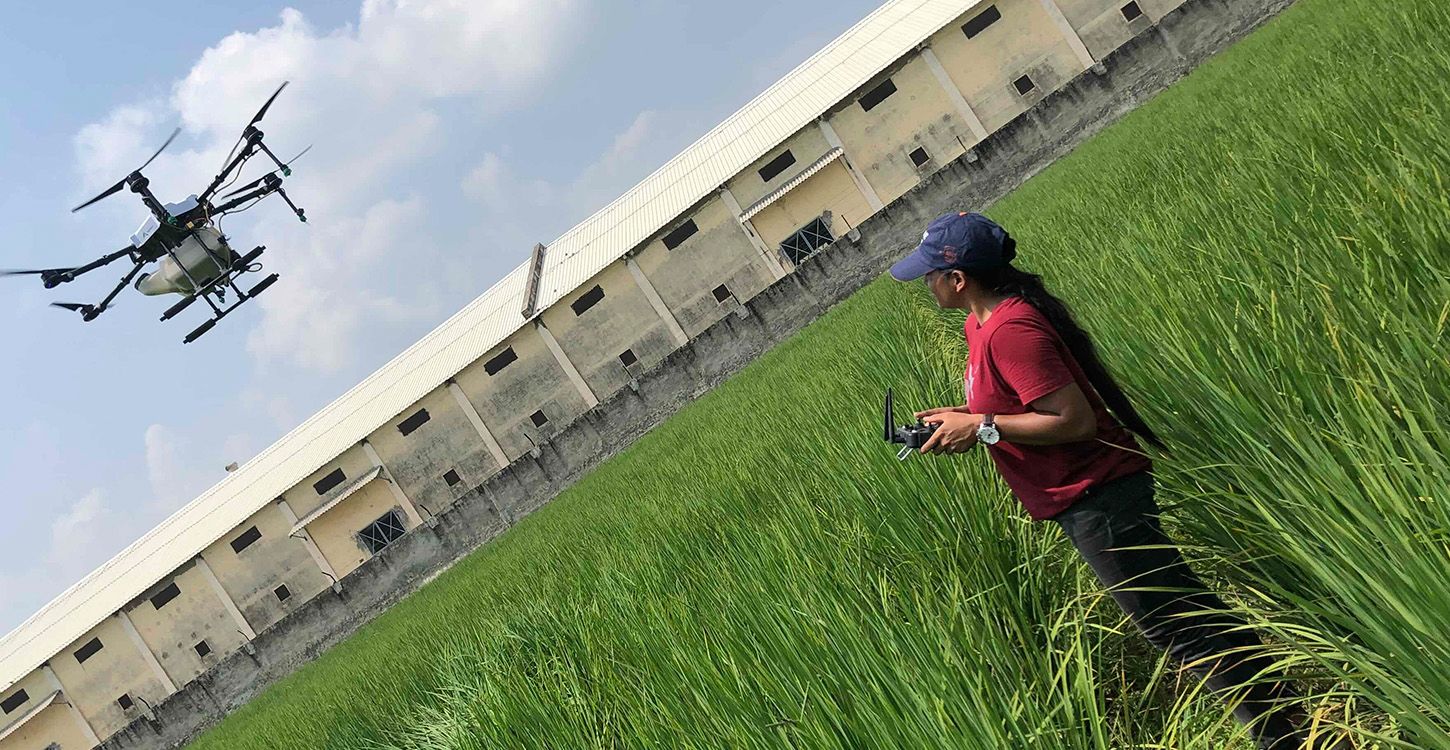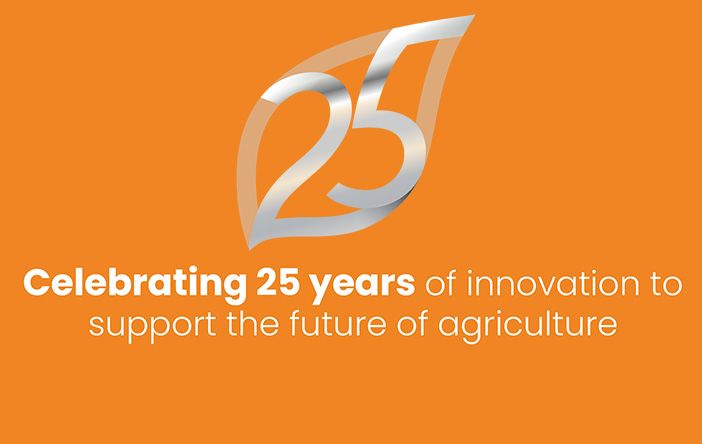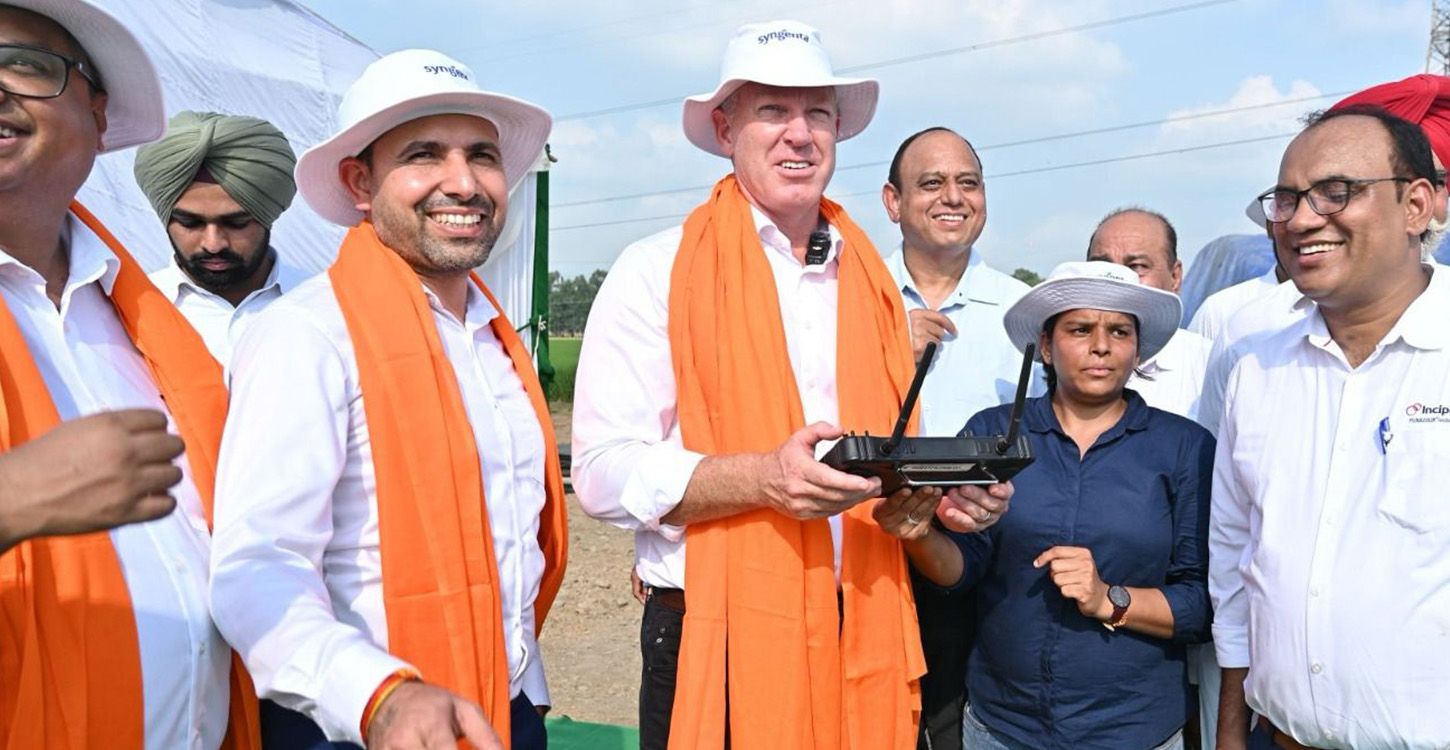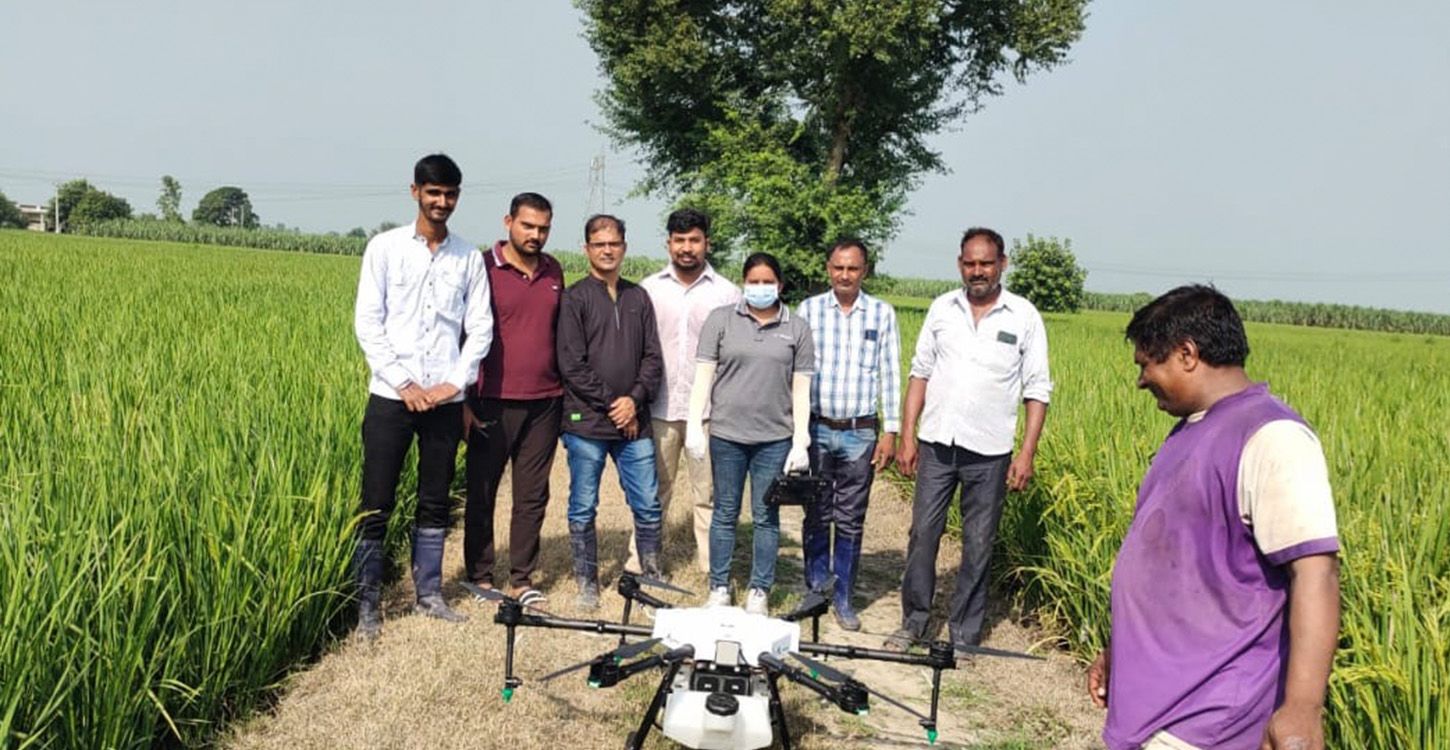Nisha Kumari
India’s pioneering female drone pilot
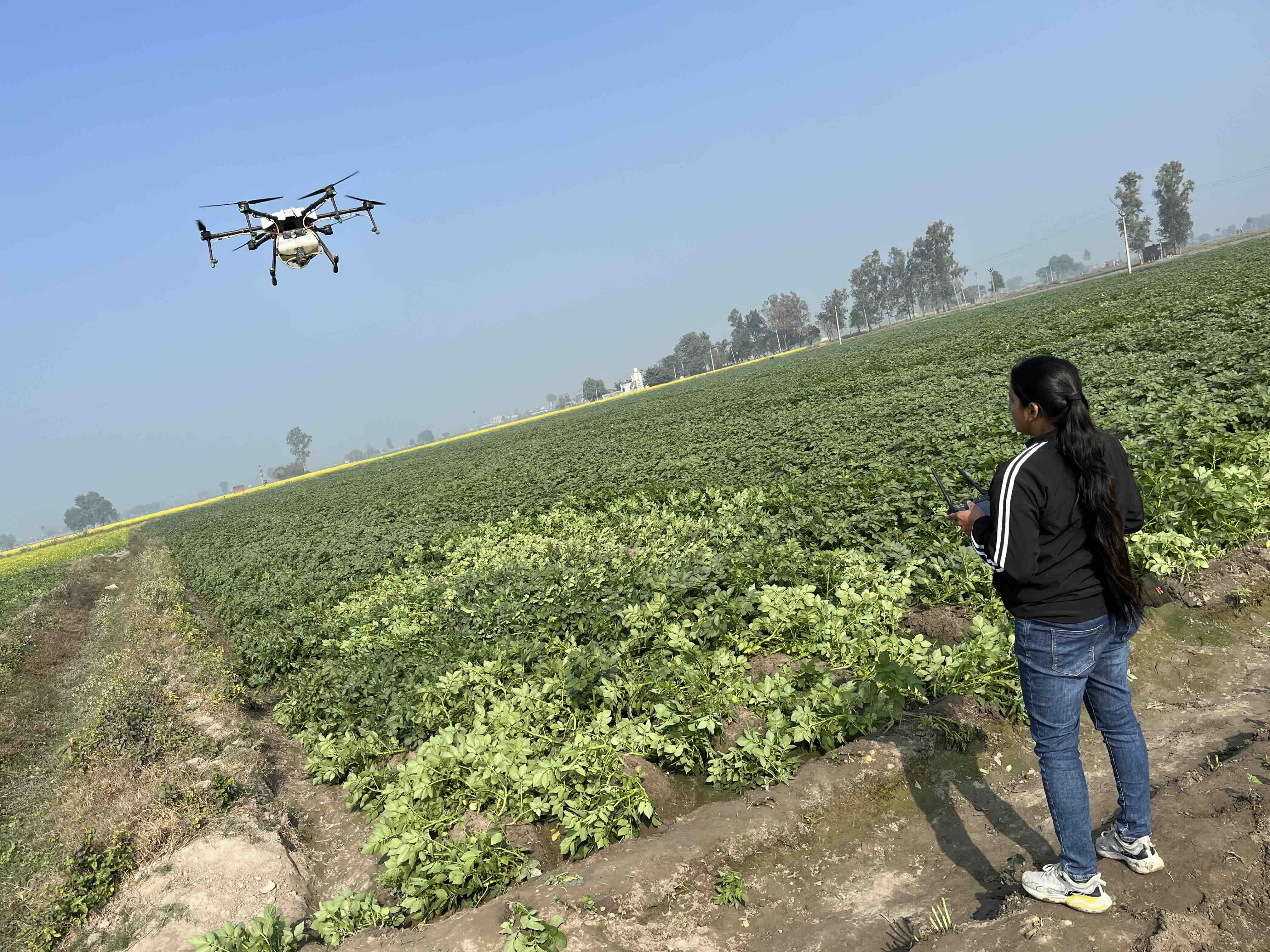
Nisha Kumari
India’s pioneering female drone pilot
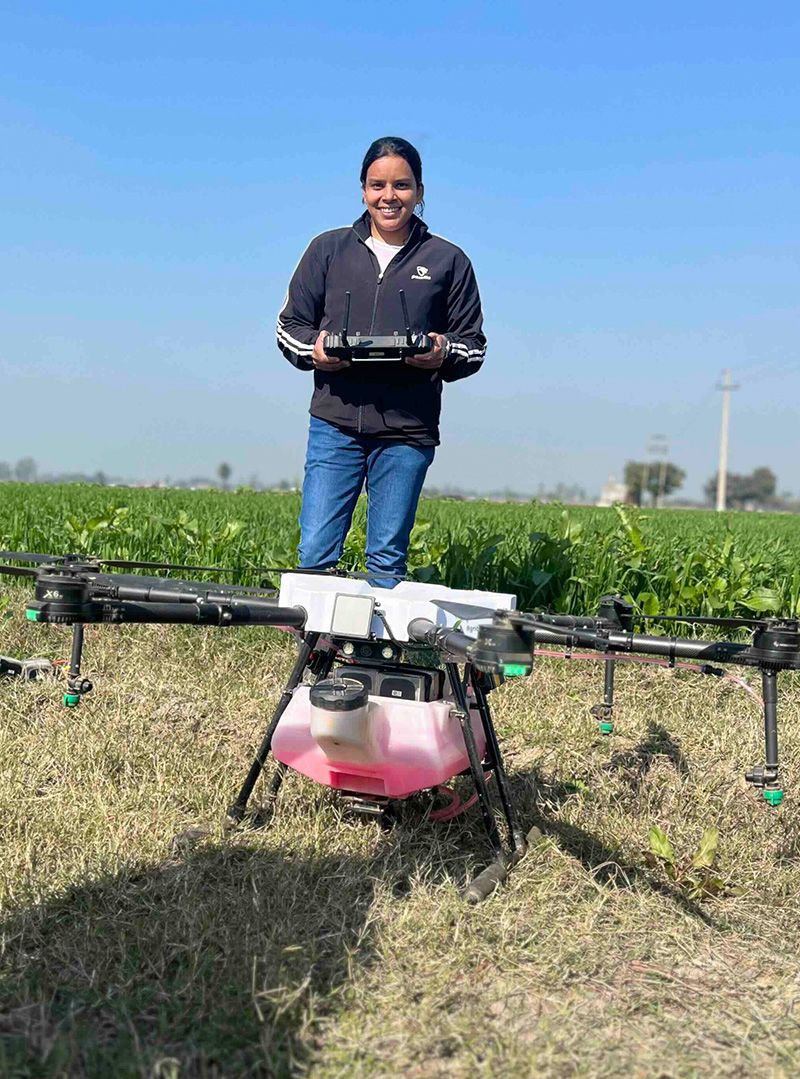
When Nisha Kumari reflects on her career, she remembers her father’s words.
“My journey into agriculture began with the purpose that my father saw in me,” she says. “Though he served the nation in the Indian Army, he was deeply connected with the farming background in Haryana. He used to say that defending the country is one duty and the other is feeding the nation. Somehow his words left an imprint on my heart, and I chose agriculture as a career.”
Based in Haryana, North-central India, Kumari pursued agricultural engineering in the hope of making a difference to farmers’ lives. Following her studies, she began working at the state’s Department of Horticulture in 2018. A year later, her boss and mentor asked if she’d like to see a drone demonstration.
“That was the turning point in my life,” she says. “My journey towards drone operation started there.”
By 2022, the Indian Government had launched a remote pilot qualification. Keen to grab the opportunity, Kumari took the course and secured her Remote Pilot Certificate in March 2022 from the Directorate General of Civil Aviation (DGCA).
“This makes me the first female drone pilot in Haryana because, at that time, it wasn’t very popular,” she says. “But it was being a participant in the drone demonstration event in 2019 where my journey first took flight.”
Nisha Kumari is an Application Technology Specialist in Crop Protection R&D at Syngenta India.
Nisha Kumari is an Application Technology Specialist in Crop Protection R&D at Syngenta India.
This year, Syngenta is celebrating its 25th anniversary. Check out more of our stories about innovation.
This year, Syngenta is celebrating its 25th anniversary. Check out more of our stories about innovation.
When Nisha Kumari reflects on her career, she remembers her father’s words.
“My journey into agriculture began with the purpose that my father saw in me,” she says. “Though he served the nation in the Indian Army, he was deeply connected with the farming background in Haryana. He used to say that defending the country is one duty and the other is feeding the nation. Somehow his words left an imprint on my heart, and I chose agriculture as a career.”
Based in Haryana, North-central India, Kumari pursued agricultural engineering in the hope of making a difference to farmers’ lives. Following her studies, she began working at the state’s Department of Horticulture in 2018. A year later, her boss and mentor asked if she’d like to see a drone demonstration.
“That was the turning point in my life,” she says. “My journey towards drone operation started there.”
By 2022, the Indian Government had launched a remote pilot qualification. Keen to grab the opportunity, Kumari took the course and secured her Remote Pilot Certificate in March 2022 from the Directorate General of Civil Aviation (DGCA).
“This makes me the first female drone pilot in Haryana because, at that time, it wasn’t very popular,” she says. “But it was being a participant in the drone demonstration event in 2019 where my journey first took flight.”
This year, Syngenta is celebrating its 25th anniversary.
This year, Syngenta is celebrating its 25th anniversary.
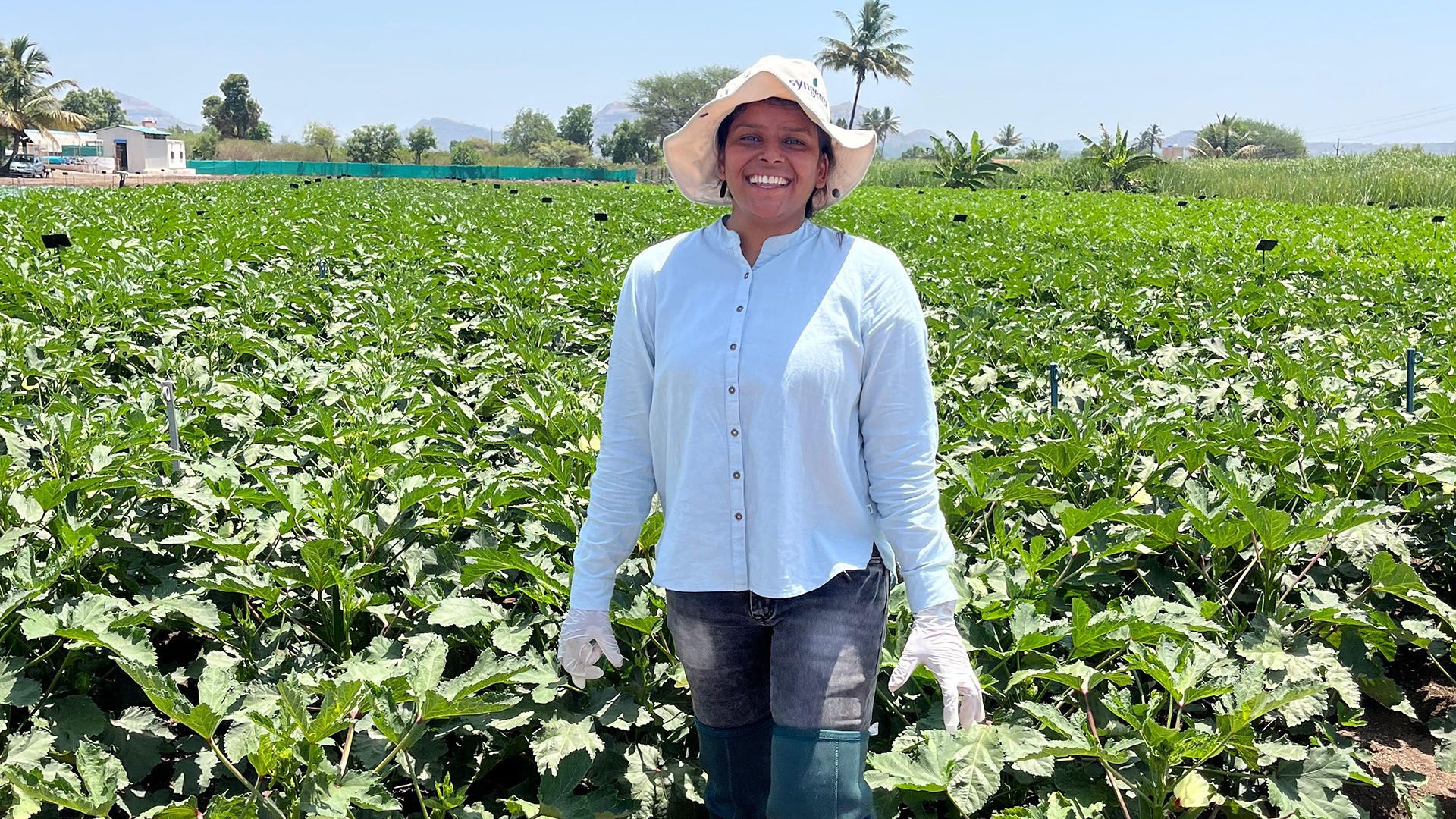
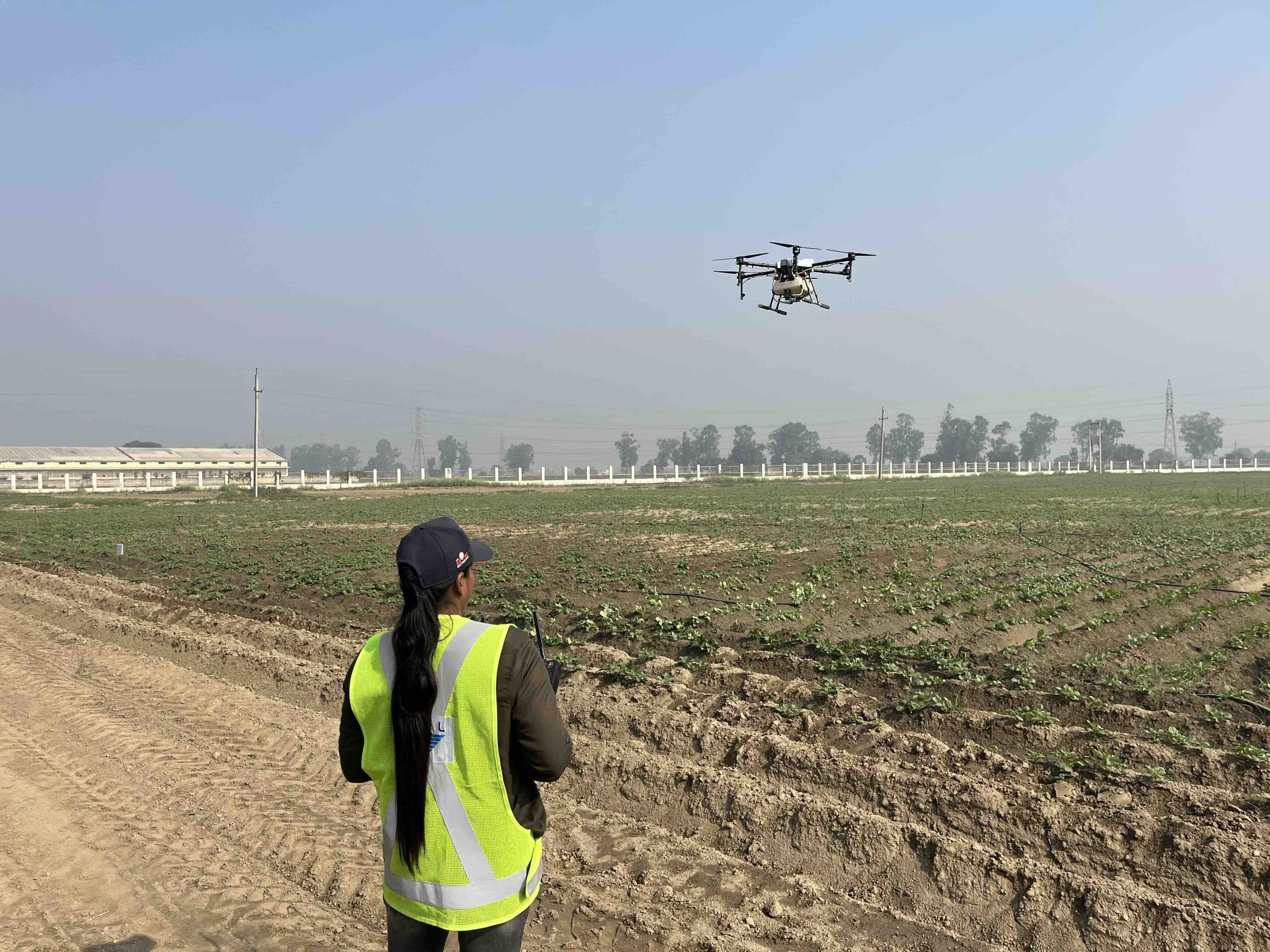
The route to success
Today, Kumari is an Application Technology Specialist in Crop Protection R&D at Syngenta India. But the route to a job she loves hasn’t always been easy, as she explains.
“When I was studying, there were only six or seven girls in my batch. The rest were boys. And when I started studying agricultural engineering, it was quite uncommon because, at that time, computer engineering and IT were more popular. So, I had challenges from the beginning.”
While Kumari’s professional progress may not have been smooth, it has, in her words, been “incredibly rewarding”, particularly as a woman in a field dominated by men.
“The path I have walked has been difficult because people have been skeptical. But I didn’t bother with all of that. I focused on my ambition, I focused on my work and my job, and I overcame the skepticism and the doubts.”
Her hard work has paid off. Among her pioneering work as a female agricultural drone pilot was a drone demonstration for the Indian Council of Agricultural Research, a body responsible for coordinating agricultural education and research.
She says: “I also got the opportunity to meet India’s Prime Minister, Shri Narendra Modi, at the Bharat Drone Mahotsav (Drone Festival of India) held in New Delhi and share some of my experiences including how I am engaging in drone spray operations in agriculture and how I am demonstrating the technology and the tangible benefits of this technology.”
Adoption of drone technology is growing rapidly in India. Authorities at central and state levels are keen to promote the technology and the benefits it can bring to agriculture, including time savings and cost efficiencies.
Kumari is also eager to talk about the drone sector, not least because the tech is partly why she joined Syngenta two years ago. Before that, she worked at the Department of Horticulture’s Potato Technology Center in Haryana and collaborated with the International Potato Center (CIP) where she was actively engaged in “cutting-edge technologies like soilless cultivation, aeroponics, potato seed production, and management of the greenhouses”.
She says: “I chose to come to Syngenta because I’d heard a lot about it from my senior colleagues, about its working culture and its reputation for being a safe place to work for women. Here, I can work with the latest technology and support innovation in agriculture.”
Putting farmers first
Since joining Syngenta, Kumari has never looked back. Highlights have included talking to Syngenta CEO Jeff Rowe during a global webinar on International Women’s Day and being asked by the Indian Government to demonstrate drone capabilities for visiting dignitaries, including foreign ministers of state.
Nisha Kumari leads a demonstration during a visit with Syngenta CEO Jeff Rowe (centre).
Nisha Kumari leads a demonstration during a visit with Syngenta CEO Jeff Rowe (centre).
But her favorite (and most rewarding) part of the job is “seeing the farmer with a happy face”.
She says: “This reminds me that I am making a difference in the farmer’s life. Talking about application technology is crucial because sometimes farmers are not aware of it. If they don’t have the knowledge about drift management, that’s something we can talk about together.
“So, it’s a great opportunity to make a real difference at ground level. I try to simplify the technology into their own language because I can understand a lot of dialects. If they are using the technology in a meaningful way, that’s a rewarding part of my job.”
Her role at Syngenta allows Nisha Kumari (centre) to work with the latest technology and support innovation in agriculture.
Her role at Syngenta allows Nisha Kumari (centre) to work with the latest technology and support innovation in agriculture.
Hindi is Kumari’s mother tongue. In addition, she understands English, Punjabi, Gujarati, and some Marathi. Dialects include Bagri, Mewati, Bhojpuri, and Awadhi.
Outside of work, Kumari enjoys cooking and gardening.
“These two habits are deeply connected with my love for agriculture. Cooking has helped me to appreciate the hard work behind every ingredient, and gardening keeps me grounded. I can visualize the journey of the farmers on my own very small scale.”
Looking ahead, Kumari reflects on her family ties.
“Inspired by my father’s values and the resilience in the farming community, I aspire to build a future where farmers are more confident, more sustainable and more efficient, and where farmers can thrive.”

This year, Syngenta is celebrating its 25th anniversary. We are proud of our continuous innovation and contribution to the food system over the past quarter century. Check out more of our stories about innovation.
This year, Syngenta is celebrating its 25th anniversary. We are proud of our continuous innovation and contribution to the food system over the past quarter century. Check out more of our stories about innovation.
